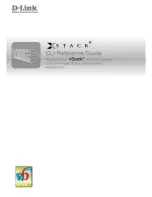
Eaton Corporation
Electrical Sector
1000 Cherrington Parkway
Moon Township, PA 15108
United States
877-ETN-CARE (877-386-2273)
Eaton.com
© 2009 Eaton Corporation
All Rights Reserved
Printed in USA
Publication No. IL2C12769H07 / Z8678
June 2009
PowerChain Management is a registered
trademark of Eaton Corporation.
All other trademarks are property of their
respective owners.
Remote latch check switch (LCS) for
Magnum low voltage circuit breakers
Instructional Leaflet
IL2C12769H07
Effective June 2009
Step 2:
Remove the accessory (if installed) and the spring release
(SR) from the indicated positions on the accessory tray by lifting its
lock up and sliding the accessory toward the front of the breaker.
Then lift accessory up and out of tray. Do not disconnect the wiring.
Figure 3. Step 2
Step 3:
Plug the connector from the LCS onto the two pins of the
spring release circuit board. Then push the LCS into the slot in the
accessory tray. Make sure the LCS is fully seated.
Figure 4. Step 3
Step 4:
Reinstall any accessory that was removed in Step 2.
Step 5:
Test the installation.
cautiOn
push the Off buttOn first tO ensure that the breaker is nOt
charged. failure tO fOllOw this actiOn cOuld result in a
seriOus injury.
With the breaker OPEN and DISCHARGED, push down on the
trip lever platform (to its stop) and release. The LCS should not
operate. This is indicated by the absence of an audible “click” from
the switch.
Now charge the breaker using the manual handle. When the breaker
is fully charged, the trip lever will return to the latched (platform
Spring Release
Remove This Accessory
for Easier Access
Lock
level) position. Repeat the above test by pushing the trip lever
platform down and releasing it. An audible “click” from the switch
should be heard.
Figure 5. Step 5
Step 6:
Reinstall the front cover. Push the CLOSE and then the
OPEN pushbuttons to discharge all energy from the mechanism,
leaving it in an OPENED and DISCHARGED status.
Disclaimer of warranties and
limitation of liability
The information, recommendations, descriptions, and safety
notations in this document are based on Eaton Corporation’s
(“Eaton”) experience and judgment, and may not cover all
contingencies. If further information is required, an Eaton sales
office should be consulted.
Sale of the product shown in this literature is subject to the terms
and conditions outlined in appropriate Eaton selling policies or other
contractual agreement between Eaton and the purchaser.
THERE ARE NO UNDERSTANDINGS, AGREEMENTS,
WARRANTIES, EXPRESSED OR IMPLIED, INCLUDING
WARRANTIES OF FITNESS FOR A PARTICULAR PURPOSE OR
MERCHANTABILITY, OTHER THAN THOSE SPECIFICALLY SET
OUT IN ANY EXISTING CONTRACT BETWEEN THE PARTIES. ANY
SUCH CONTRACT STATES THE ENTIRE OBLIGATION OF EATON.
THE CONTENTS OF THIS DOCUMENT SHALL NOT BECOME
PART OF OR MODIFY ANY CONTRACT BETWEEN THE PARTIES.
In no event will Eaton be responsible to the purchaser or user in
contract, in tort (including negligence), strict liability, or otherwise
for any special, indirect, incidental, or consequential damage or loss
whatsoever, including but not limited to damage or loss of use of
equipment, plant or power system, cost of capital, loss of power,
additional expenses in the use of existing power facilities, or claims
against the purchaser or user by its customers resulting from the
use of the information, recommendations, and descriptions
contained herein.
The information contained in this manual is subject to change
without notice.
Trip Latch
Lever




















